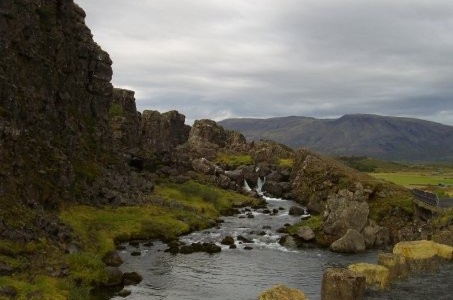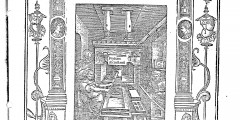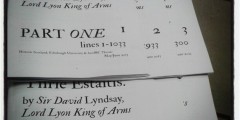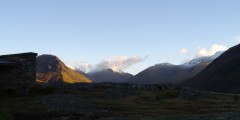The Far Traveller
September 24, 2013
I have just come back from a range of different research trips which took me to Shetland, Iceland, Germany and Ireland in a very brief time span. While I have really enjoyed the opportunities to talk with my colleagues, I am less keen on the travel itself, especially since flying is not very comfortable, airports …
Comparing technologies of publication
July 25, 2013
About five and a half centuries ago, printing with moveable type became possible, a result of Johannes Gutenberg’s inventiveness, but also because the necessary materials, including the right kinds of metal to make type, became available. Over the subsequent fifty years or so, this technology spread and became commercially viable: more printed books circulated, especially …
The Enduring Past
June 27, 2013
Last Friday the Nottingham Medievalists celebrated the 25th anniversary of our Institute and it was a great opportunity to talk to colleagues and students old and new, but it was especially wonderful to see so many people from outside the university. It is very obvious that medieval matters to many people despite the inaccurate ways …
The drama of good government
June 3, 2013
Next Friday (June 7), I will be attending an extraordinary performance next Friday: an uncut production of Sir David Lyndsay’s Ane Satyre of the Thrie Estaitis at Linlithgow Peel. Ane Satyre is the first surviving play text in Older Scots: it is a personification play, most akin to Mankind , Everyman or even Magnificence. The …
An earlier Iron Lady?
April 10, 2013
Baroness Thatcher is not the only Margaret to have had a significant impact on the history of Scotland. There is Margaret of Denmark, wife of James III, who seems to have kept the peace between her husband and her eldest son, James IV; there is also her daughter-in-law, Margaret Tudor, who provided her great-grandson (through …
Frost and Famine
March 28, 2013
The ongoing cold weather continues to dominate our news. March in Old English is hreðmonað ‘rough/cruel month’ and this March certainly plays up to its medieval title. With a fear of energy shortages we may perhaps understand why winter and early spring were difficult times for our medieval ancestors. Most of the food that had …






